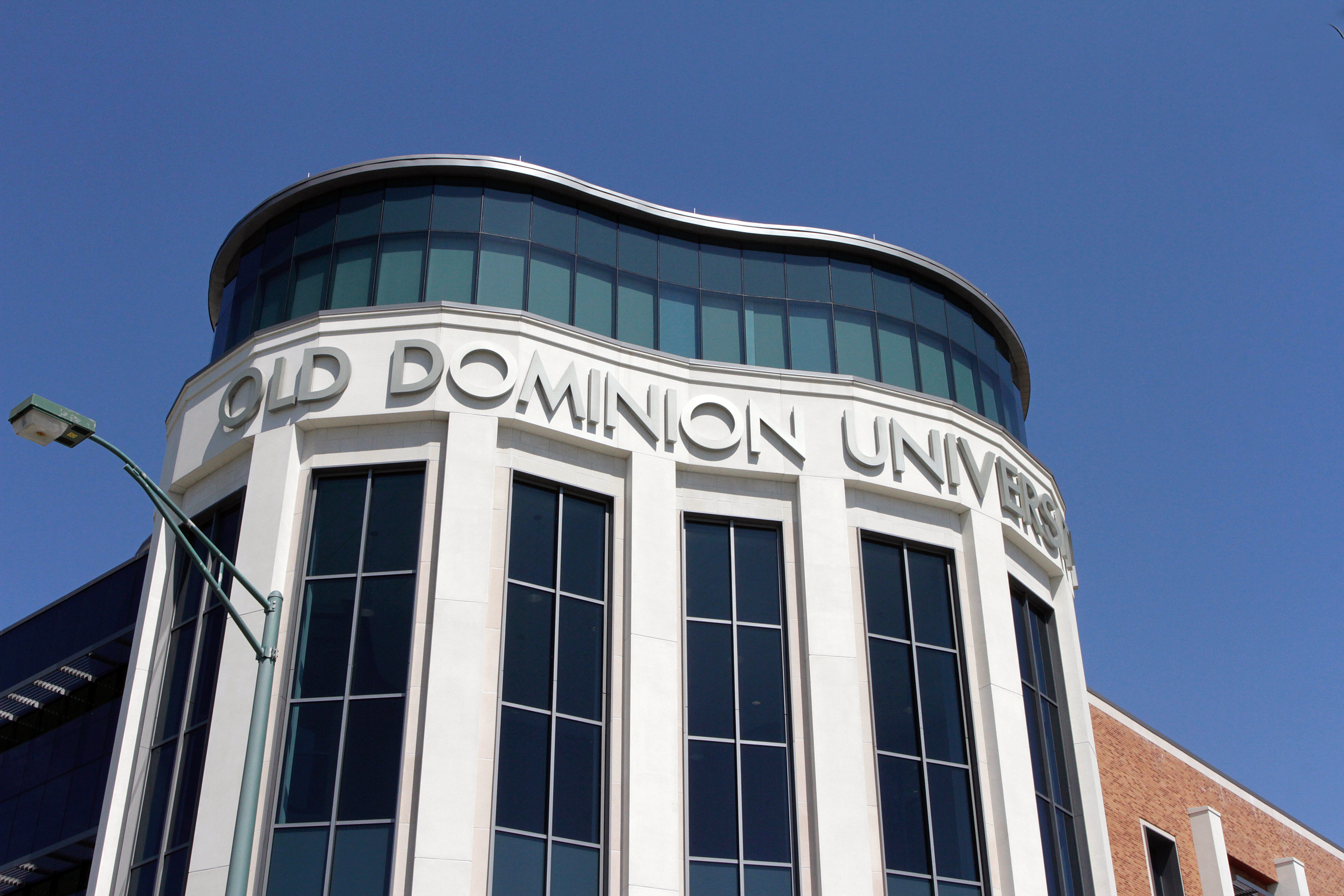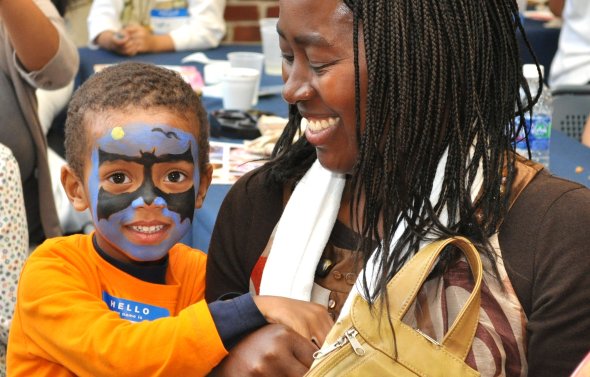The purpose of this series is to bring to light how what is taught at all levels of education is born of colonization and to elevate how we can work together to decolonize the curriculum to make education accessible for all. Stemming from the "Inclusive Curriculum" of the 1990s and "Decolonizing the University" in 2011, the term Decolonizing the Curriculum arose from the University of Cape Town in South Africa. In this movement, students demanded the removal of the Cecil Rhodes statue, as the statue was a stark reminder of Eurocentric academic paradigms.
Since that time, the Decolonizing the Curriculum movement has encouraged dialogue and action for the inclusion of all cultures and knowledge systems in formal education settings and recognizes that these changes are necessary for a sustainable future.
At Old Dominion University, we pride ourselves in being a public, minority-serving research institution that values active civic engagement. The Decolonizing the Curriculum is sponsored by a generous gift by President Broderick and designed to spark candid and uncomfortable examinations of educational institutions.
UNESCO - Futures of Education: Learning to Become
Decolonizing the Curriculum Events
Indigenous presence, weaponry, and (un)belonging in the glittering world
Higher Education
Keynote Speaker: Dr. Amanda Tachine
Date: March 18th, 2021 7:30pm-8:30pm
Systemic monsters and their hauntings linger in the lives of Navajo college students. These systemic monsters and their hauntings are often normalized by a society that ignores the inequities in higher education by maintaining the status quo of Native people in the United States. Yet, Navajo students activate regenerative "Indigenous weapons" rooted in Navajo ways of knowing that sustain their survivance and reawaken power and the sovereignty of Indigenous presence and belonging in college settings and society.
Prereading: In preparation of the event, please review her prereading: Story Rug: Weaving stories into research. This chapter provides a methodological context to the conversation with Dr. Tachine. For additional resources, please review Indigenous Children's Survivance in Public Schools.
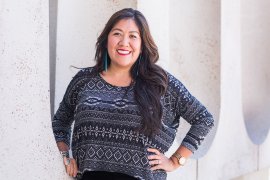
Dr. Amanda Tachine
Assistant Professor in Educational Leadership & Innovation at Arizona State University
Culturally Responsive School Leadership
PK-12 Education
Keynote Speaker: Dr. Muhammad Khalifa
Date: April 20th, 2021 7:30pm-8:30pm
How should humanization, anti-oppressiveness, and cultural responsiveness be systematized in school? This presentation focuses on how school leaders can effectively serve minoritized students—those who have been historically marginalized in school and society. The lecture suggests that leaders must be central to culturally responsive school reforms, and demonstrates how leaders can engage students, parents, teachers, and communities in ways that positively impact learning by honoring indigenous heritages and local cultural practices.
Dr. Khalifa explores three basic premises. First, that a full-fledged and nuanced understanding of "cultural responsiveness" is essential to successful school leadership. Second, that cultural responsiveness will not flourish and succeed in schools without sustained efforts by school leaders to define and promote it. Finally, that culturally responsive school leadership comprises a number of crucial leadership behaviors, which include critical self-reflection; the development of culturally responsive teachers; the promotion of inclusive, anti-oppressive school environments; and engagement with students' indigenous community contexts.
In this particular lecture, we look at a much deeper look at the portion of the book that focuses on Critical Self-Reflection. Based on ethnographic research of a culturally responsive school principal who exemplifies the practices and behaviors of culturally responsive school leadership, the lecture provides educators with pedagogy and strategies for immediate implementation. The lecture ends by highlighting a central theme of community and how community-based knowledge should be positioned in all aspects of schooling. We anchor the lecture with several activities that get leaders to begin thinking about Culturally Responsive School Leadership.
Prereading: In preparation of the event, please review the prereading: Culturally Responsive School Leadership by Muhammad Khalifa (Harvard University Press, 2018)

Dr. Muhammad Khalifa
Professor of Educational Administration
Ohio State University
It's a marathon, not a sprint: Building stamina for the long-term work of decolonization
Higher Education
Keynote Speaker: Dr. Sharon Stein
Date: May 13th, 2021 7pm-9pm
Decolonization is a topic of increasing interest among institutions of higher education, and those who work and study within them. However, there are many different ways of approaching decolonizing work. Indigenous scholars have pointed out that many institutionalized decolonization efforts thus far have been largely tokenistic, extractive, and paternalistic, and failed to interrupt the continuity of colonial business as usual (e.g. Ahenakew, 2016; Daigle, 2019; Tuck & Yang, 2012). They have also pointed to the need to both enact more substantive forms of redress for historical and ongoing colonial violence, and regenerate relationships rooted in trust, respect, reciprocity, accountability, and consent (Whyte, 2020). As Indigenous curator Elwood Jimmy notes, to do this kind of decolonizing work properly takes time, and cannot be rushed: it's a marathon, not a sprint. In other words, it requires us to build the stamina to stay engaged and accountable when things become difficult, complex, and uncomfortable, and to build muscles for capacities that are atrophied or exiled. In this workshop, participants will be invited to develop more generative approaches to engaging with the discomforts, contradictions, conflicts, and failures that inevitably accompany decolonizing work.
Drawing on the work of the Gesturing Towards Decolonial Futures Collective, the workshop will offer participants a chance to engage with the intellectual, affective, and relational dimensions of decolonization so that we might interrupt harmful patterns of knowing, being, and relating, and learn how to live together differently.
Prereading:
- Developing Stamina for Decolonizing Higher Education: A Workbook for Non-Indigenous People (workbook)
- Complexities and Challenges of Decolonizing Higher Education: Lessons from Canada (article)
- Wanna Be An Ally? (poem and exercise)
- Why I Can't Hold Space for You Anymore (poem and exercise)
- The Gifts of Failure (exercise for self-study)
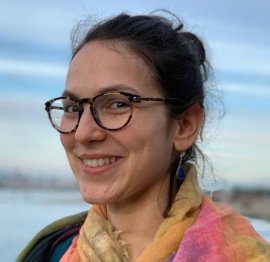
Dr. Sharon Stein
Assistant Professor
Department of Educational Studies
University of British Columbia
Research Associate with the Chair for Critical Studies in Higher Education Transformation
Nelson Mandela University
Decolonization of the Curriculum Workshop with Dr. Khalifa
PK-12 Education
Keynote Speaker: Dr. Muhammad Khalifa
Date: June 1st, 2021 4pm-5pm
Prereading:
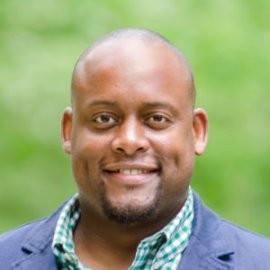
Dr. Muhammad Khalifa
Professor of Educational Administration
Ohio State University


